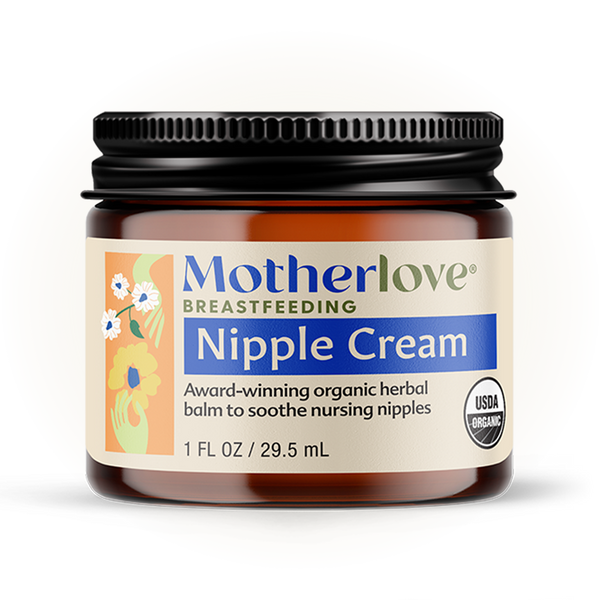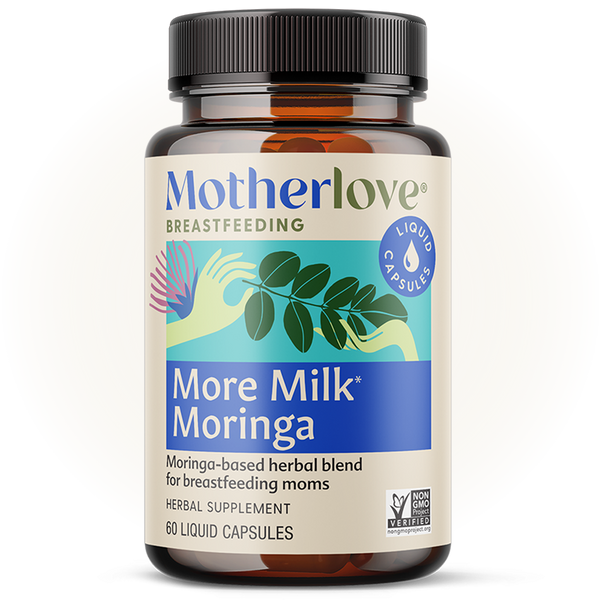Written by Wendy, IBCLC.
It’s very common to wonder whether something you’re eating while breastfeeding may be impacting your baby. After all, babies can be very fussy at times, and it’s not always easy to figure out why. (If only babies had words to explain what was going on!)
Likewise, babies often spit up, are gassy, and have irregular pooping schedules. All of this causes new parents to wonder if maybe the broccoli they had for dinner or the milk they stirred into their morning coffee might be having an effect.
Personally, I was certain that something I ate was causing my first baby to spit up endlessly. As a breastfeeding helper, “Is it something I ate?” was one of the most frequently asked questions I would get from breastfeeding moms.
The answer to the question about whether the foods we eat may be impacting our babies is … maybe. Sometimes. But not usually.
Let’s take a look at this question closely.
HOW FOODS IMPACT BREAST MILK
It’s important to understand that the foods we eat don’t directly “go into” our breast milk. First, the nutrients and other food components we eat are digested, broken down, and then enter our bloodstream. Breast milk is made of nutrient components like fats, carbs, proteins, and vitamins and minerals (not to mention blood cells, hormones, growth factors, and antibodies!). These are taken from our bloodstream and plasma. This means that only certain components of the foods we eat get passed into our breast milk.
WHAT THE RESEARCH SAYS
Overall, there is limited research on how the foods we eat impact our breast milk and our babies. However, the research shows that it’s actually uncommon for something we eat to affect our baby’s mood or digestion. Most pediatricians and lactation consultants urge breastfeeding mothers to eat a rich, varied diet and not avoid most foods because of concerns about their infant’s reaction.
MYTHS VS. FACTS
There are many cultures around the world that have rules about what a breastfeeding mom should and shouldn’t consume. For instance, some cultures recommend against eating cold foods or spicy foods. Some warn that if a breastfeeding mom eats gassy foods, her baby will be gassy. So, what is true and what isn’t?
GASSY FOODS
One prevalent myth is that if you eat food that gives you an upset stomach, your baby will get an upset stomach as well. For instance, gassy foods like broccoli, peppers, onions, and cabbage are often avoided by breastfeeding moms. But this is a myth: gas and fiber don’t enter breast milk. The same is true of acidic foods like tomatoes or citrus fruits: they can’t change the pH of your breast milk.
SPICY FOODS
Moms are also often told that they need to stay away from spicy foods because if they eat them, their babies will get gas, diarrhea, fussiness, or rashes. There’s no evidence that spicy foods can get into breast milk and impact a baby’s digestive tract. However, strong flavors can subtly change the taste and smell of breast milk. That doesn’t necessarily mean that your baby will reject your milk, though! Still, every baby is different, so if your baby seems fussy every time you eat super spicy foods, you might consider holding back for a while.
DAIRY AND OTHER FOOD ALLERGENS
We do know that some of the common allergens can enter breast milk. These include dairy, soy, eggs, wheat, corn, and nuts. However, even with these, most babies aren’t going to have a true allergic reaction to them. According to the Academy of American Pediatrics (AAP), only two to three out of every hundred babies are truly allergic to a component of their mom’s breast milk.
When this happens, the most likely culprit is dairy, followed by soy. Signs of a true newborn food allergy are different than fussiness or mild colic symptoms. Babies with allergies will typically have blood in their stool, skin rashes, vomiting, severe colic, severe diarrhea, or trouble breathing.
FOOD SENSITIVITIES
At the same time, babies can be sensitive to some of these common allergies or to other foods that enter your breast milk. How do you know that this may be the case? Well, you may notice that your baby is extra fussy within a few hours of you eating the given food. Usually, this fussiness lasts for about 24 hours. It can be helpful to keep a food diary in cases like these, recording what foods you ate and when, along with the hours your baby was fussy. This will help you to see any patterns.
Keep in mind that even when babies are sensitive to a food you eat, most of them outgrow these sensitivities in time. Even if your baby does better after you eliminate a certain food, most moms find that it’s only necessary to do this for a few months.
WHERE TO GO FROM HERE
Breastfeeding can be challenging, and this is especially true when you’re dealing with a fussy baby or baby who has an upset tummy. There are many reasons why babies fuss or seem uncomfortable, including growth spurts, overstimulation, overactive letdowns, illnesses, or even stress in the family. While sometimes something you ate may be contributing, this is usually not the case.
It can be helpful to have some help as you navigate questions and concerns about breastfeeding and your baby’s fussiness. Please don’t hesitate to reach out to a breastfeeding counselor or breastfeeding professional for support.
*This is not intended to be medical advice. Please consult with your healthcare provider.






